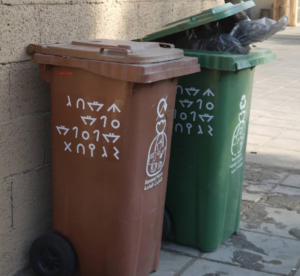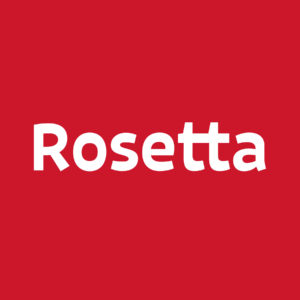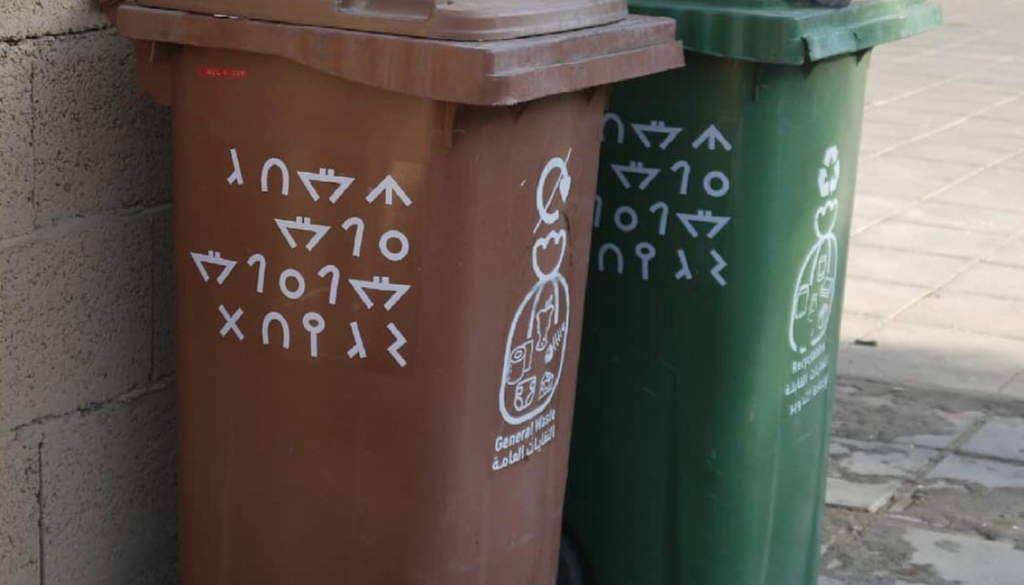Recycling…alphabets?
 Several years ago I was visiting UNESCO headquarters in Paris, meeting with the official in charge of language revitalization. When the conversation turned to my area of interest—endangered alphabets—she asked “How would you save a dying script?”
Several years ago I was visiting UNESCO headquarters in Paris, meeting with the official in charge of language revitalization. When the conversation turned to my area of interest—endangered alphabets—she asked “How would you save a dying script?”
One answer, as it turns out, is…recycling bins.
Right before Christmas, I was sent a photo that Andrew Duncan Petersen had shot in al-Ula, in Saudi Arabia, a shot of two ordinary, unglamorous recycling bins. On the side of each one, though, were four rows of curious marks that Andrew, unlike most people throwing out their recycling in al-Ula, recognized.
Al-Ula, he explained, was in pre-Arabic times known as Dadan, and these marks were writing in the all-but-forgotten Dedanitic script. The Dedanitic script was in use during the second half of the first millennium BC in the oasis of Dadan (modern al-Ula) prior to the arrival of the Nabateans.
The unfamiliar characters say “Keep al-Ula clean.”
I posted the photo on Facebook and Twitter, and the response was astounding. People all over the world were fascinated by this local exercise (initiated by the Saudi Ministry of Culture, I was told) in presenting and promoting an ancestral local script, and a common thread was—why stop there?
For the tiny additional cost of a small amount of paint, a municipality can take advantage of the fact that it has, in effect, its own media of promotion and publicity. Recycling bins, lamp posts, road signs—all these functional and humble surfaces become potential billboards.
In Tahlequah, Oklahoma, home of the headquarters of the Cherokee Nation, the council has added Cherokee to many of the downtown road signs and the post office. In parts of northern Canada, STOP signs carry text in the Canadian Aboriginal Syllabics as well as English and/or French. Schools, government buildings and even the major airports in Morocco now bear signage in Tifinagh.
So this column is something between an invitation and a challenge. Let’s see recycling bins in Ireland sporting a parallel set of instructions in Ogham. Let’s see post offices in Croatia offering directions in Glagolitic. A community that forgets, or does not even know, its roots is a community cut off at ground level, culturally speaking; its identity is as shallow as dust.
Municipal councils everywhere, contact your local paleographers! Bring in your graphic designers and typographers! A new golden era of linguistic garbology is at hand!
This post is sponsored by our friends at Typotheque, Rosetta, and Solidarity of Unbridled Labour.




